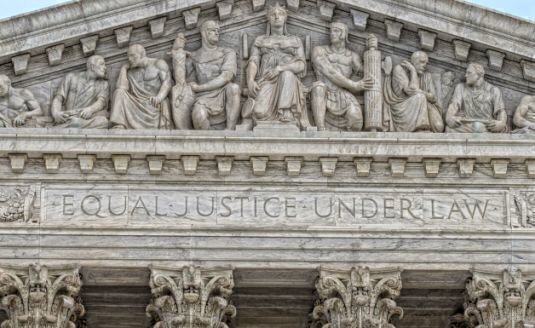The Supreme Court warned state governments on Wednesday that they may violate the rights of stores and others selling consumer goods or services by imposing tight restrictions on how they inform buyers about the prices being charged.
 The decision raised some doubt about, but did not finally settle, the constitutionality of a New York state law that bars the posting of a price for those who pay cash but adding that a fee will be added for those who use a credit card. The state law outlaws this kind of display, the court said, because it forbids the charging of a credit card “surcharge.”
The decision raised some doubt about, but did not finally settle, the constitutionality of a New York state law that bars the posting of a price for those who pay cash but adding that a fee will be added for those who use a credit card. The state law outlaws this kind of display, the court said, because it forbids the charging of a credit card “surcharge.”
A federal appeals court was told to decide whether that approach intrudes too deeply on the sellers’ free speech rights under the First Amendment. That court, the U.S. Court of Appeals for the Second Circuit, had ruled that the law did not violate free-speech rights at all because it regulating the setting of a price – a form of conduct, not speech.
The Supreme Court majority, speaking through an opinion by Chief Justice John G. Roberts, Jr., disagreed. “The law,” Roberts wrote, “tells merchants nothing about the amount they are allowed to collect from a cash or credit card payer…What the law does regulate is how sellers may communicate their prices….In regulating the communication of prices rather than prices themselves, [the state law] regulates speech” and that brings the First Amendment into play,
The majority stressed that it was making only a limited decision, confined to whether the First Amendment puts a limit on a law declaring that a merchant cannot post a single sticker price, and then tell credit -card customers they must pay more than that. The majority did not attempt to deal with other possible ways that the New York law might be interpreted to apply to retail pricing displays.
The commercial situation at stake in the case arose because credit-card companies typically charge merchants a fee – often, 3 percent of the price – when a customer used that company’s card to make a purchase. This can result in thousands of dollars a year of added cost to the merchants, unless they pass on the added fee to their customers.
The five New York retailers of consumer goods or services challenged the law because they wanted to post signs that stated a single price, but also stating that the added fee will be tacked on for credit-card users. They were not using that preferred display because they feared that it would run afoul of the state’s law, so they sued, seeking to have it struck down as a free-speech violation.
The Chief Justice’s opinion was supported in full by Justices Ruth Bader Ginsburg, Elena Kagan, Anthony M. Kennedy and Clarence Thomas.
Justice Sonia Sotomayor, joined by Justice Samuel A. Alito, Jr., wrote a lengthy separate opinion, agreeing that the case had to be sent back to the lower court, but arguing that the case should actually have been transferred to New York’s highest state court to get a clear-cut interpretation of what the state actually covers. That opinion protested that the Roberts majority opinion had undertaken to settle too little about the reach of the state law.
Justice Stephen G. Breyer wrote a short, separate opinion, accepting the outcome but offering his own thoughts on how to decide cases involving free speech and commercial expression, and agreeing with the idea that the state court should weigh in on what the law means.
The decided case was Expressions Hair Design v. Schneiderman. It was the only case decided Wednesday.
Legendary journalist Lyle Denniston is Constitution Daily’s Supreme Court correspondent. Denniston has written for us as a contributor since June 2011 and has covered the Supreme Court since 1958. His work also appears on lyldenlawnews.com.







